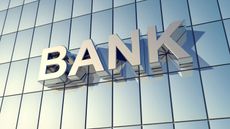Kiplinger's Retail Outlook: February Sales Softer Than Expected
Retail sales rebounded only halfway from January’s snowstorm slowdown.

Kiplinger’s Economic Outlooks are written by the staff of our weekly Kiplinger Letter and are unavailable elsewhere. Click here for a free issue of The Kiplinger Letter or to subscribe for the latest trends and forecasts from our highly experienced Kiplinger Letter team.
Retail sales rebounded after a big January snowstorm kept many shoppers at home, but the 0.6% rise in February only recovered about half of January’s sales drop. If motor vehicle and gasoline sales are excluded, the recovery was only one-third. While one month does not make a trend, it may indicate that consumers have finally begun to ease up on spending. All eyes will be on spring sales to either confirm or deny a new trend.
February sales excluding gasoline rose 0.6%, but half of that gain was due to a large 1.8% rebound in motor vehicle sales. Warm weather in February juiced building materials sales by 2.2% and electronics and appliance stores by 1.5%, but other category gains were modest: Food service, general merchandise and miscellaneous sales were all up about a half percent. More ominous was that e-commerce, groceries and sporting goods sales were flat, and furniture, health and personal care, and clothing store sales showed declines.

Sign up for Kiplinger’s Free E-Newsletters
Profit and prosper with the best of expert advice on investing, taxes, retirement, personal finance and more - straight to your e-mail.
Profit and prosper with the best of expert advice - straight to your e-mail.
Consumer spending on services excluding restaurants rose a strong 1.0% in January, the latest month for which data is available. The strength in January is partly the result of higher utilities spending during the cold weather. But services spending has risen briskly since last fall and is up 7.9% at an annual rate over the past five months.
The strength in services spending could signal the beginning of a switch by consumers to buying more services as their need for goods levels off. Purchases of goods soared at the beginning of the pandemic in 2020. While services have picked up since then, the share of goods in household spending is still well above its pre-pandemic norm and implies that the switch to more spending on services still has room to run.
The weaker-than-expected February sales rebound will likely make it easier for the Federal Reserve to make its first interest rate cut in June if inflation eases. The economy in general is due to cool a bit in the next six months, with a gradually weakening jobs market. Saving rates have been much lower than their historical norms and will likely begin to rise slowly, cutting into future retail spending. Student loan repayments started up in October, and along with higher interest rates on consumer loans, that may weaken some households’ spending power.
Related content

To continue reading this article
please register for free
This is different from signing in to your print subscription
Why am I seeing this? Find out more here

David is both staff economist and reporter for The Kiplinger Letter, overseeing Kiplinger forecasts for the U.S. and world economies. Previously, he was senior principal economist in the Center for Forecasting and Modeling at IHS/GlobalInsight, and an economist in the Chief Economist's Office of the U.S. Department of Commerce. David has co-written weekly reports on economic conditions since 1992, and has forecasted GDP and its components since 1995, beating the Blue Chip Indicators forecasts two-thirds of the time. David is a Certified Business Economist as recognized by the National Association for Business Economics. He has two master's degrees and is ABD in economics from the University of North Carolina at Chapel Hill.
-
 Is a Phased Retirement Right for You?
Is a Phased Retirement Right for You?Want to keep working, just not as hard? A phased retirement may just be the answer.
By Kimberly Lankford Published
-
 Four Tips to Make Your Sales Presentation a Winner
Four Tips to Make Your Sales Presentation a WinnerBeing prepared and not being boring can go a long way toward persuading a potential customer to buy into what you’re offering.
By H. Dennis Beaver, Esq. Published
-
 A Spotlight on the Pacific States: The Kiplinger Letter
A Spotlight on the Pacific States: The Kiplinger LetterThe Kiplinger Letter Most Pacific states are seeing good job growth in multiple sectors including tourism, hospitality, and construction.
By David Payne Published
-
 The Robots Are Coming... But Not For a While
The Robots Are Coming... But Not For a WhileThe Kiplinger Letter There’s excitement in the tech sector over the potential of humanoid robots, but widespread adoption is likely to be years away.
By John Miley Published
-
 Farmers Face Another Tough Year As Costs Continue to Climb: The Kiplinger Letter
Farmers Face Another Tough Year As Costs Continue to Climb: The Kiplinger LetterThe Kiplinger Letter Farm income is expected to decline for a second year, while costs continue to up-end farm profitability.
By Matthew Housiaux Published
-
 A Spotlight on the Mountain States: The Kiplinger Letter
A Spotlight on the Mountain States: The Kiplinger LetterThe Kiplinger Letter Most Mountain states are seeing good job growth in multiple sectors from healthcare, energy, and semiconductor production to farming and government.
By David Payne Last updated
-
 H-1B Work Visa Rules Get a Revamp
H-1B Work Visa Rules Get a RevampThe Kiplinger Letter H-1B visas allow employers to hire high-skilled foreign workers. Regulators have finalized new rules for this visa program following last fall's proposal.
By Matthew Housiaux Published
-
 When's the Best Time to Buy a Domestic Flight? The Kiplinger Letter
When's the Best Time to Buy a Domestic Flight? The Kiplinger LetterThe Kiplinger Letter A new study by CheapAir.com has crunched the numbers.
By Sean Lengell Published
-
 A Spotlight on the Plains States: The Kiplinger Letter
A Spotlight on the Plains States: The Kiplinger LetterThe Kiplinger Letter The labor market is tight in the Plains states and outside of healthcare and construction most sectors are flat or down.
By David Payne Published
-
 Woes Continue for Banking Sector: The Kiplinger Letter
Woes Continue for Banking Sector: The Kiplinger LetterThe Kiplinger Letter Regional bank stocks were hammered recently after news of New York Community Bank’s big fourth-quarter loss.
By Rodrigo Sermeño Published